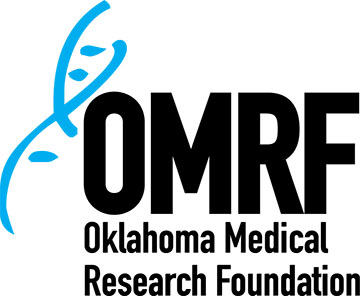After 30 years as a firefighter, Jason Dobson realized his risk of getting cancer was higher than the general population. So, when he learned of a clinical study to measure the potential effects of smoke- and soot-related chemicals, Dobson jumped at the chance.
The ongoing study found that certain chemicals associated with fighting fires cause changes in tiny molecules that help control how cells work. These molecule changes result from exposure to hydrocarbons that form as things burn, scientists found.
Their discovery, published in the journal Environmental Research, could lead to earlier detection of cancer for firefighters and possibly better protective gear. “That is my main hope,” said scientist Jooyeon Hwang, Ph.D., who initiated the study at the University of Oklahoma Health Sciences Center, with Oklahoma Medical Research Foundation scientist Bill Freeman, Ph.D., as her mentor.
Dobson became a firefighter at age 18 and currently is chief of the Olive Volunteer Fire Department near Drumright in Creek County. After learning about the study, Dobson not only joined, he also signed up his seven Olive colleagues to participate.
“We’ve known for a long time that firefighters are more prone to get cancer because of the chemicals we’re exposed to, even with the huge improvements that have been made to our protective equipment,” Dobson said.
The study involved collection of chemical residues from firefighters’ “turnout gear” following fire suppression. Firefighters also provided blood and urine samples.
Scientists found that exposure to smoke impacts blood cells and, over time, alters proteins in their urine. This results in molecular changes, or biomarkers, that indicate the presence or potential for certain cancers. Career fighters were at greater risk of developing these biomarkers than volunteer firefighters, the study found.
Hwang said this study lays the groundwork for more specific research on the effects firefighters face from long-term exposure to hydrocarbons and other chemicals.
“Before Dr. Hwang’s study, there had been very little research into the biological effects from fighting smoke and fire,” Freeman said. “Samples might be collected from simulated fires that are part of the training process, but that’s completely different from the exposure that results from fighting actual fires.”
Hwang has continued collecting data from the Oklahoma firefighters since taking a new role as an associate professor at the University of Texas Health Science Center at Houston.
Neither Dobson nor the Olive firefighters under his command tested positive for the biomarkers the study examined. Still, Dobson undergoes rigorous annual testing in addition to the biomarker screenings he continues to receive through Hwang’s study.
His reasoning: “Cancer’s a longtime thing. Just because you don’t have it today doesn’t mean it won’t show up later.”
This study was supported by grants from the National Institute for Occupational Safety and Health, the Oklahoma Shared Clinical and Translational Resources and the American Cancer Society.













